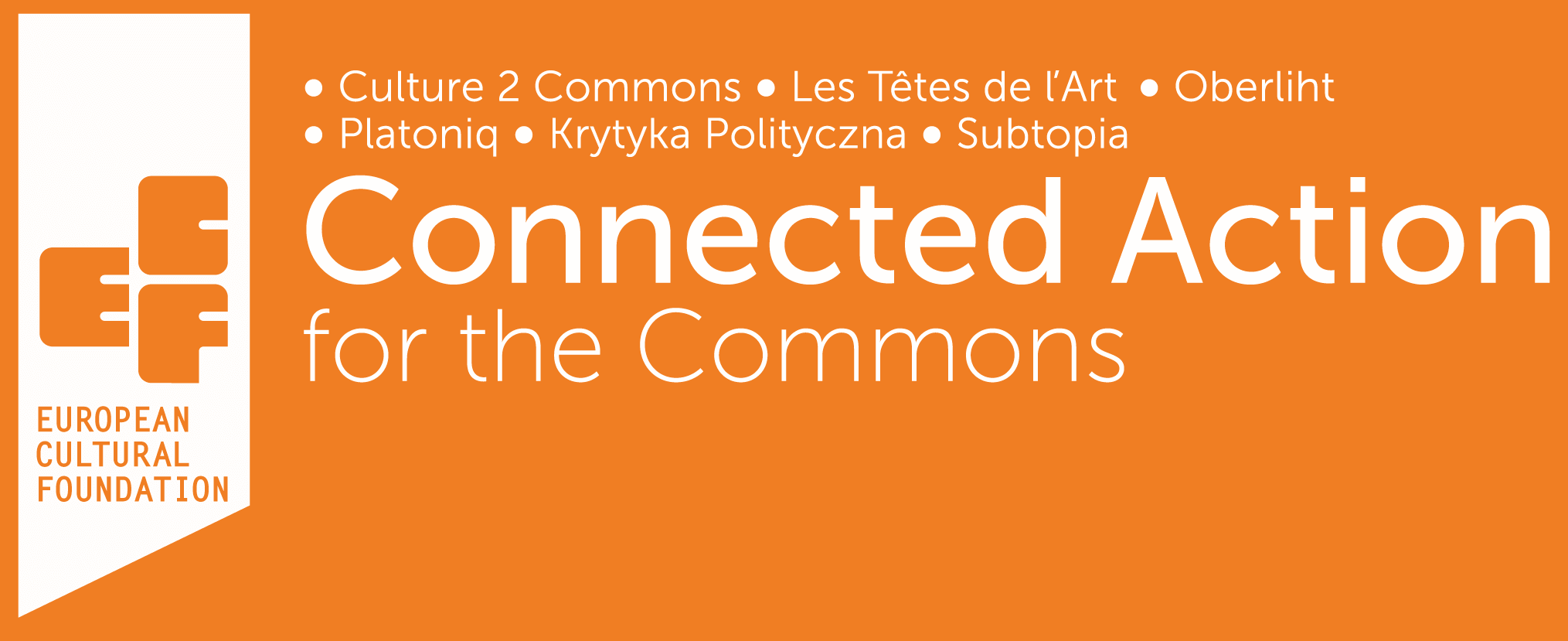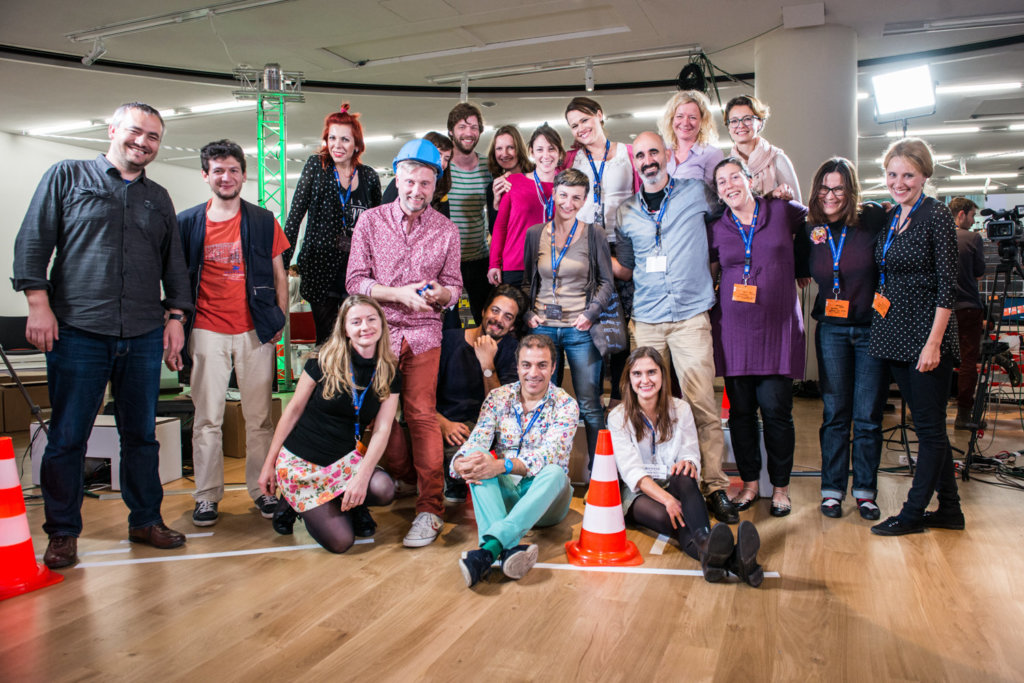In 2013 ECF took a strategic step in promoting catalytic philanthropy taking on partners (also called hubs) with the aim of developing an action-research programme and a network connected to democracy, community and culture around Europe. The hubs are cultural organizations from Spain, France, Croatia, Moldova, Poland and Sweden which have developed different but complementary expertise in topics such as commons, public space, culture and economy, working closely with diverse local communities often crossing sectorial boundaries. They met for the first time in Antwerpen (Belgium) and found themselves in a room with like-minded but unknown partners. The process of transforming a funder and grantee relation into one of equal partnership had an early cost in time and confusion around the programme, its’ language and its’ design. The key word here being “trust”.
Let’s not be coy about this, the early incentive of the hubs to engage in the programme was the funding as it secured steady sources for their local activities. The proclaimed aim of ECF to scale up and connect local activities of various organizations proved to be the first challenge. Through the process of co-learning, familiarizing with other hubs’ local contexts, exchanging experience and knowledge on notions of commons, participation and institutional innovation and providing interconnectivity of actors the network has explored potentials for different ways of doing things in culture and elsewhere. The local connected to the European and the international not through a linear organization of activities but through rhizomic structures developed in this process, often revealing unexpected connections between mobilization strategies in local cultural fields with international struggles for the commons bringing it back to the local level in the form of struggle against privatization of highways (Croatia), public space usurpation (Moldova) or neoliberal and anti-immigration policies (Sweden) and taking it again to the EU level by connecting to the European parliamentary intergroup. All the while, the hubs worked on local, national and European level.
This new network of value-aligned but diverse organisations built strong personal relationships with each other over time. Any mutual process starts in trust, and trust takes time and it takes people – trust is not built formal entity to formal entity but eye to eye. Many of us feel that the defining moment for our future collaborations was in the preparation of the first Idea Camp where we created everything together, from methodology to the event scenography. Idea Camp was the common project that brought us in touch with actors that didn’t belong to our communities. It created a platform for co-creation, co-learning, exchange and networking among diverse group of participants.
Thanks to the Idea Camp the network extended both geographically and sectorially to include all from idea makers to politicians, from artists to media workers, from practitioner to “expert”, young and less young. The rhizom has spread and finally answered the challenge from the beginning of the process – upscaling. Here methodologies of crowdfunding, hybrid institutional models, community organizing found their way from the local to the international in a meaningful interaction of these diverse actors.
We should not forget that the entire process is deeply rooted in cultural practices of the hubs and ECF and has been fueled by our expertise crossing into social, political and economic fields. This nexus of culture and society brought about through interaction and experiment in horizontal organization between various organizations internationally is the true legacy of the process exemplified in the participatory funding platform which interconnects activists in Europe tackling issues that are in the heart of CAftC.

